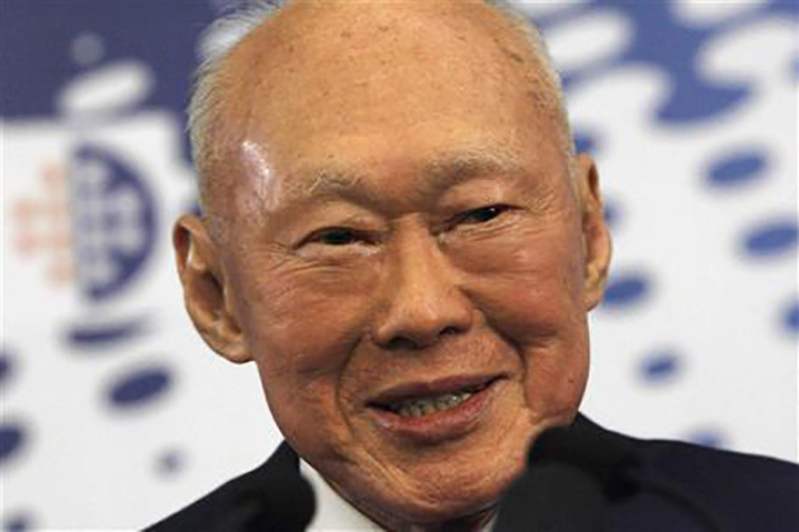
The economically dynamic city-state of Singapore is preparing for the possibility of a future without founding father Lee Kuan Yew, who still remains in hospital under critical condition on Thursday.
According to Ben Doherty of the Guardian, 91-year-old Lee helped lead Singapore to independence and prosperity during his 31-year tenure as prime minister. Crowds have gathered outside Singapore General Hospital to pay tribute to him.
"Lee Kuan Yew remains critically ill in the ICU and has deteriorated further," current prime minister and son Lee Hsien Loong said in a statement.
Doherty reported that although Yew has receded from public life in recent times, he remains a beloved figure in the country.
"It will be sad when he dies," teaching assistant Imad Alatas, 33, said. "He has his flaws, but (he) has achieved a lot for this country."
"He is a good man, and I've always seen him as the father of modern Singapore," civil servant Asyraf Jalil, 26, said.
According to the Guardian, Yew came down with pneumonia in early February, which forced him to go to hospital. He was later placed on mechanical ventilation in the ICU.
Doherty elaborated on the invaluable contributions Yew made to the city-state during his tenure. The former prime minister has been credited "with transforming Singapore from a sleepy Asian entrepot into a bustling and wealthy financial hub."
"He led Singapore's six-year transition from British colonial outpost, through self-administration, merger with and then separation from Malaysia, to independent statehood, and Singapore declaration as a republic, in 1965," Doherty wrote.
The Guardian reported that economic growth was encouraged in Singapore through easy regulation and low taxes for business while maintaining "a large government apparatus to look after citizens." However, Violet Law of the Los Angeles Times reported that Singaporeans, particularly those in younger generations, want to shape the country's future away from "strongman politics."
"The tacit social contract has been political stability and economic growth in exchange for a curtailment on freedom and political rights," Lam Peng Er, senior research fellow at National University of Singapore's East Asian Institute, said. "What Singaporeans need is a new social contract."
Kishore Mahbubani, who has served in Singapore's government for 33 years, defended the approach to Law.
"From day one, Singapore paid attention to the social needs of its people: from housing to healthcare, from education to the environment," Mahbubani said.
The Guardian reported that media freedoms and political dissent were not tolerated in the city-state. Political opponents of Yew often faced prison, exile, or financial ruin through expensive libel suits.
"From 1965 to 1981, the ruling party won every seat in every election," Doherty wrote. "Parliament was formed with no elected opposition MPs for almost two decades."
Remy Choo, a public-interest lawyer, told the Los Angeles Times that Yew's crackdown on some freedoms left an unintended effect on its citizens still felt to this day.
"People here think they can't beat the government, so they're afraid to take on the government," Choo said.
Law reported that although 50 years have passed since the country's founding, Choo and other activists hoped that the country's future would include "bolder and more diverse voices."
"I want to move away from the discourse of fear of the government," he said. "A lot of fear has to be dispelled by our example."






